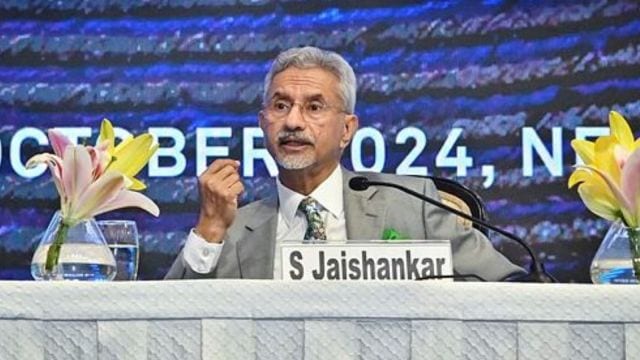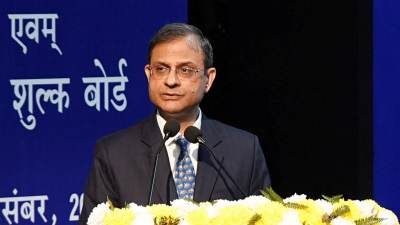Amid rising protectionist measures in India and the West against the rapid surge of Chinese imports in crucial sectors, External Affairs Minister S. Jaishankar said on Sunday that one of the impacts of globalisation over the past 25 years has been job losses and dissatisfaction with the quality of life in many societies, as trade has not only been globalised but also weaponised.
Speaking at the Kautilya Economic Conclave here, the minister stated that the conflicts in Ukraine and West Asia have shifted the focus of global politics away from crucial issues such as reforms of Multilateral Development Banks (MDBs), climate change, and the India–Middle East–Europe Economic Corridor (IMEC), which was conceptualised during the G20 meeting in India last year.

“On the one hand, the world is becoming more deeply globalised, with supply chains increasingly transnational. Hardly anything significant is made entirely in one country anymore, except perhaps in very large nations. This has led to increased interdependence. On the other hand, there is a social and political backlash against globalisation because the way it has been managed over the past 25 years has resulted in job losses and dissatisfaction with quality of life in many societies, which has, in turn, influenced politics,” Jaishankar said.
Rising protectionism
Jaishankar’s comments come a week after steep US tariffs on China took effect amid concerns that a fresh wave of Chinese products in clean energy and high-tech sectors – dubbed China Shock 2.0 – could cause job losses in several regions, including India. The first shock occurred when cheap Chinese goods flooded global markets following China’s entry into the WTO in 2001, resulting in job losses worldwide.
In response to protective measures abroad, India has also increased anti-subsidy measures on Chinese products. In 2024 alone, India imposed over 30 anti-dumping measures against China, the highest number for any country. The targeted products include industrial items such as plastic processing machines, vacuum-insulated flasks, welded stainless steel pipes and tubes, soft ferrite cores, and industrial laser machines, among others.
Indian businesses seeking multiple extensions of anti-dumping duties argue that China is not a market economy and harms Indian industries by employing predatory methods to eliminate competition.
“Trade is not just globalised; it’s also weaponized. When trade and finance are weaponized, countries take defensive measures. This is one of the reasons for protectionism or, at the very least, for caution regarding supply chains. National security has become a pervasive lens through which economic transactions are now viewed. As economic transactions increasingly involve technology, this national security filter will only grow stronger,” Jaishankar said.
Story continues below this ad
He added that countries are willing to compromise economic efficiency for the sake of national security, privacy protection, and, in some cases, keeping jobs at home, as the narrative of job losses is a powerful one in many regions.
“So, in essence, the realities of globalisation are going to clash with the forces of protectionism,” he said.
IMEC & MDB reforms
Jaishankar also reiterated that the conflicts in Ukraine and West Asia have diverted global political attention from critical issues such as MDB reforms and climate change.
“Tomorrow marks exactly a year since the terrorist attacks on Israel, and as a result, the focus we expected on the IMEC has not materialised. However, this does not mean that the IMEC is dead, discarded, or even shelved. I’ve visited both Saudi Arabia and the UAE, and we currently have ongoing projects with the UAE on IMEC, as well as feasibility studies initiated with Saudi Arabia,” he said.
Story continues below this ad
He further noted that with rising risks due to the proliferation of various technologies and other factors, the case for IMEC has only grown stronger, and India expects the development of the corridor to accelerate.
“The reality is that in global politics, there is limited bandwidth. One or two issues tend to dominate the agenda. Over the past two and a half years, it has been Ukraine, and over the past year, the Middle East. During my meetings with G20 colleagues at the UN General Assembly (UNGA), I have to admit that the expected push for MDB reforms was lacking. Instead, the Middle East was the top priority, followed by Ukraine, and even climate change has dropped in importance,” Jaishankar said.

































